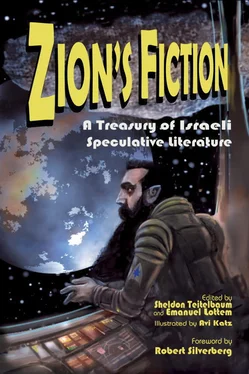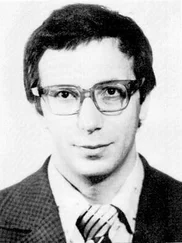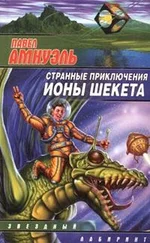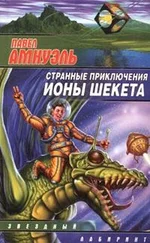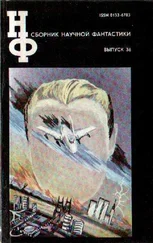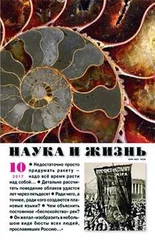ZION’S FICTION
A TREASURY OF ISRAELI SPECULATIVE LITERATURE
EDITED BY
Sheldon Teitelbaum and Emanuel Lottem
FOREWORD BY Robert Silverberg
AFTERWORD BY Aharon Hauptman
ILLUSTRATIONS BY Avi Katz
To my wife, Lilith, and kids, Adam, Shiran, and Liam, for keeping my sense of wonder afloat; to my mom, Roz, whose fortitude is something to behold; to my late father, Harry, and to uncles, Jack and Ben (ZT”L), who would have had a hoot with this, and to Grand Master Bob, who bent space and opened portals.
—SHELI TEITELBAUM
To Larry Niven, who showed me how science fiction ought to be written; to my friends at the Israeli Society for Science Fiction and Fantasy, those who feature in this anthology and everyone else as well; and to my wife, Liana, my sons, Amos and Eran, and their children.
—EMANUEL LOTTEM
IN MEMORIAM
Keren Embar
Amos Geffen
Mordechai Sasson
Nava Semel
Aharon Sheer
תנצבײת
Foreword
Robert Silverberg

What we have here is something like a message from another world: a sampling of the powerful imaginative work that emanates from a small, struggling nation on the shores of Asia, a nation created in the twentieth century on a foundation that dates back into biblical antiquity, a nation of thinkers and fabulators that exists in constant uncertainty and has used that uncertainty as the fuel for deep and often very moving speculative thought. That is to say, an anthology of Israeli science fiction and fantasy.
The Jews have often been called the People of the Book, and the Book meant by that phrase is the Hebrew Bible—known to the non-Jewish world as the Old Testament but to Jews everywhere as, simply, the Bible. To believers of all faiths, the Bible is a sacred scripture, the record of God’s dealings with mankind from the moment of creation (“In the beginning,” the very first sentence tells us, “God created the heaven and the earth.”) through the travails of a wandering desert tribe, the Hebrews, who had renounced pagan idolatry and polytheism in favor of belief in a single deity of austere and remote nature, the migration of that tribe out of Mesopotamia into Egypt, the escape from the tyrannical rule of Egypt’s Pharaoh into the land of Canaan, more generally known later as Palestine, and the foundation in Palestine of the Hebrew Kingdom of Israel, where the Jewish people, as the Hebrews came to be known, attempted with varying degrees of success to live according to the moral and ethical codes of their religion. The later books of the Hebrew Bible provide a chronicle of the division of the Jewish land into two kingdoms, Israel and Judah, the struggles of the two kingdoms against external enemies—the Moabites, the Philistines, the Syrians, the Assyrians, the Babylonians, and others—and, finally, the loss of Jewish independence as God’s punishment for a relapse into idolatry and other iniquities.
The Hebrew Bible isn’t just an historical chronicle plus a set of law codes, of course. It also contains an anthology of poetry—the Psalms of David—and a collection of proverbs, and what is essentially a short novel, the Book of Job. Nor is the Book of Job the only story that the Bible tells. It is, in fact, full of stories throughout, stories that have held the attention of mankind for three thousand years. It begins with the story of creation, goes on to tell of the life of our first ancestors in the Garden of Eden (“And the rib, which the Lord God had taken from the man, made He a woman, and brought her unto the man.”), continues to the temptation of Eve and the expulsion from the Garden, and on and on: the murder of Abel by Cain, the coming of a great flood from which only Noah and his family escape, the episode of the instructions of God to the patriarch Abraham to sacrifice his only son Isaac and everything that proceeded from that (and Isaac was not exactly his only son, and a long story descends from that, too) and on and on, a richness of narrative that can stand comparison with any other body of literature ever created. (The adventures of Joseph in Egypt; the career of the shepherd boy David, who became king of Israel; the Exodus from Egypt; the little affair of Samson and Delilah; the visit of the Queen of Sheba to Solomon—oh, yes, on and on. One doesn’t have to be a believer of any sort to succumb to the storytelling power of the Hebrew Bible.)
A potent fantastic element runs through many of the biblical tales as we have them now. (All of them are fantasy, if you are a nonbeliever and evaluate the whole collection from the premise that God is an imaginary being.) The Deluge of Noah, which has its antecedents in Sumerian and Babylonian legend, is a splendid apocalyptic fantasy. Moses miraculously parts the Red Sea so that the children of Israel can depart from Egypt on dry land. God manifests Himself as a pillar of fire to guide them by night in their journey through the wilderness. Samson is an early version of the superman, and like the twentieth-century comic-book incarnation has a special area of vulnerability. The visions of the prophet Ezekiel involve humanoid creatures with four faces and four wings, who carry him on something much like a voyage through space to bring him before the Lord on His throne. (The postcanonical Book of Enoch, which probably dates from the third or fourth century before Christ and has survived only in an Ethiopian translation, offers a great deal of astronomical lore and describes yet another prophet’s space voyage.) And there is ever so much more, a vast wealth of wondrous imaginative incident that remains alive and vivid in our minds even after nearly three thousand years.
Eventually the kingdoms of Israel and Judah disappeared. Their people were sent into exile by the Babylonians and brought back to Palestine by the next set of conquerors, the Persians, and upon the defeat of the Persians by Alexander of Macedon were swallowed up into his new empire, and then into the one founded by the Romans. Under the Romans, Jews emigrated to every part of the Mediterranean world, but some always remained in Palestine, which now was beginning to be called the Holy Land, the Jews sharing it with non-Jewish tribes that eventually coalesced into a population of Muslim Arabs.
Through those years of exile, diaspora, and shared occupation of Palestine, the hope of a return to the ancient days of the Kingdom of Israel surfaced again and again in Jewish thought and writing, reaching its most explicit form in Theodor Herzl’s utopian novel Altneuland ( Old New Land ), published in 1902. Herzl had first proposed a self-governing Jewish republic outside of Europe in his 1896 book Der Judenstadt ( The Jewish State ). He thought Palestine was the preferable location, for historic reasons, but at that point would have found Argentina just as acceptable. But Altneuland explicitly locates the Jewish state in Palestine. Jerusalem would be the capital; Haifa, the center of industrial activity. (Tel Aviv did not yet exist at that time. That was the name, meaning “Mound of Spring,” that the first Hebrew translator of Herzl’s novel gave to the book, and which also was given to the new Jewish settlement on the coast of Palestine that was founded in 1909.) Herzl’s republic was an egalitarian one that verged on socialism, with agricultural cooperatives and public ownership of land and natural resources but also private ownership of industry, and its citizens would converse mainly in German or Yiddish, though some attempt would be made to revive the ancient Hebrew tongue.
Читать дальше
